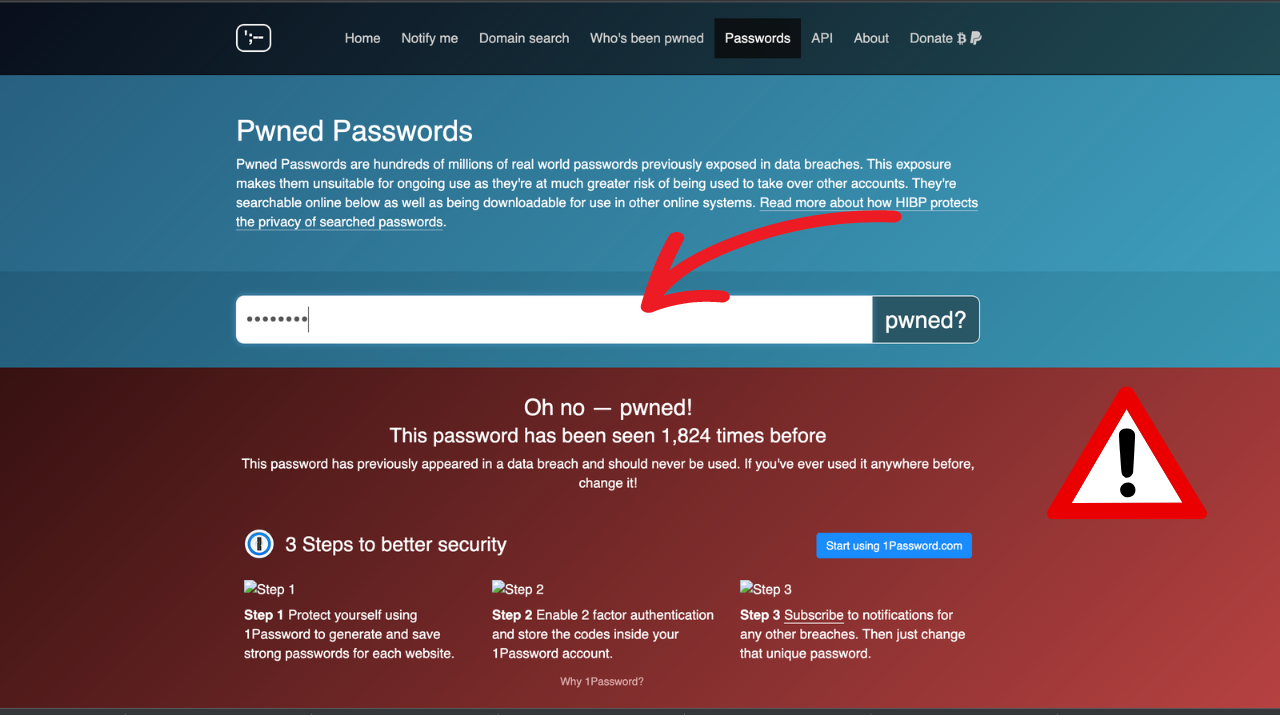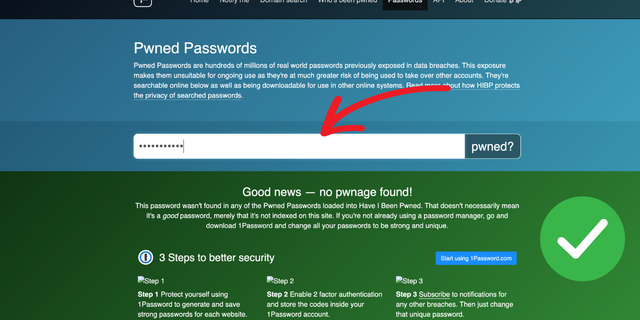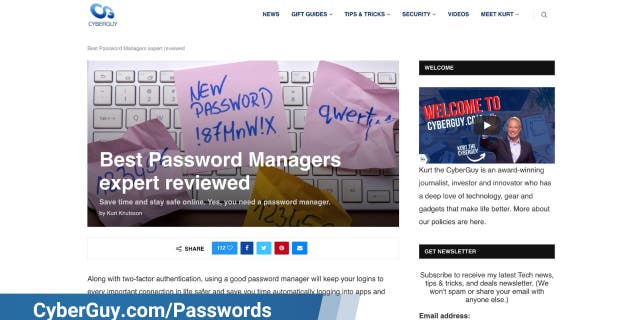
change password frequently
If you don’t have a well-crafted strong password, a clever hacker can easily compromise your privacy and security, causing devastating loss and excruciating pain in your life.
Picture this scenario: You’re relaxing on the couch, mindlessly browsing through your favorite social media app, when you receive a warning email from an unknown sender claiming to have access to all of your personal information. You initially see it as a phishing scam – then suspicion creeps in.
Can your passwords really be compromised?
Sadly, in some cases, websites have suffered data breaches, exposing users’ personal information, including passwords. This means an attacker can obtain a database of usernames and passwords and use them to gain unauthorized access to your account. But don’t worry – there is a solution.
How to check if your password has been compromised
Thanks for being tricked website Created by cybersecurity expert Troy Hunt, you can now check if your username, email address or password has ever been involved in a public data breach. By doing so, you can identify if your personal information is at risk and take necessary action (such as changing your password) to protect your account.
The check method is as follows:
Enter your information in the giant box and check to see if you’ve been “scammed”. (haveibeenpwned.com)
Enter your information in the giant box and check to see if you’ve been “scammed”.

It’s important to remember that you shouldn’t reuse passwords for critical accounts, as a compromised password for one website could provide an attacker with keys to other accounts. It’s time to change your password. (haveibeenpwned.com)
It’s important to remember that you shouldn’t reuse passwords for critical accounts, as a compromised password for one website could provide an attacker with keys to other accounts. It’s time to change your password.
How do I come up with a good password?
There are some ground rules for creating a good password that are very difficult for hackers to crack. Following these guidelines may help you narrow down what should and should not be used.
Make sure your password contains at least 12 characters
The longer the password, the more characters a hacker has to try, the better. Some sites will require you to make your password a certain number of characters anyway, but at least 12-14 characters or more is usually a safe bet.
Include numbers, symbols, uppercase and lowercase letters
Again, the more variety you have, the better. Make everything as random as possible to prevent hacking. For example, a password like “d%A$r(T496” is harder to crack than “dart496”.
Don’t let creepy scammers trick you into giving them access to your computer
avoid dictionary words
Any word by itself does not apply to passwords. It’s easy for hackers to make a lucky guess from common dictionaries, such as “cat” or “apple.” Even a combination of dictionary words like “blue car” is too easy.
don’t use substitutes
Replacing letters with commonly used symbols can also lead to bad news. For example, if you wanted to use the word “smart” but wrote it as “$mart”, it would be too obvious because the $ sign and the letter S look so similar.
It’s a good idea to use a password manager that can help you generate strong and unique passwords for every site you use.
Beware of new MACSTEALER malware that can steal your icloud keychain data and passwords
What is a password manager?
A password manager is an application or software that helps you create, store, and manage passwords in one place.
With a password manager, you don’t have to worry about remembering complex passwords or typing them in when you want to log in.
Instead, you only need to remember one master password to access your account. Additionally, most password managers come with a built-in password generator that can create strong and unique passwords for each of your accounts.
For my pick of the best password managers so far, head to CyberGuy.com/password

Screenshots of internet people (Kurt Knudsen)
By using any of these password managers, you can help ensure your accounts and passwords are protected. Plus, with the benefit of the “Have I Been Pwned” database integration, if your password has been compromised, you’ll be alerted and quickly take action to protect your account.
final thoughts
So, you already know – using a password manager and checking your passwords with Am I Compromised can help you protect your online accounts from cyber crooks who just want to access your personal information. Remember, the internet is a wild place, and it’s best to proceed with caution and use tools that make life easier and safer. So, go on an adventure; your passwords will thank you.
How to Password Protect Your Email
Which password manager do you use and why?let us know CyberGuy.com/Contact.
Click here for the Fox News app
For more tips from me click the button below to subscribe to my free CyberGuy Reports newsletter “Free Communication” link at the top of my site.
Copyright 2023 CyberGuy.com. all rights reserved.






